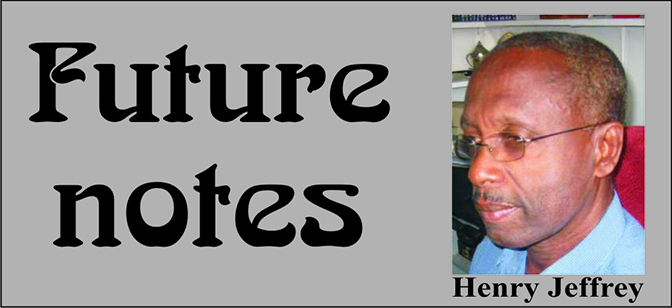Two Saturdays ago, in keeping with a rural African tradition, my cousin found a local pig and cattle rearer from whom we went to purchase pork for the holidays. As we approached, we saw the farmer splitting a nicely cleaned pig in half down the spine and another person was with him. My cousin obviously knew the other individual for they immediately broke into conversation, which eventually led to the gentleman complaining about his pension. From what I could gather, he and my cousin had worked at the same place and President David Granger had promised to ensure that a category of them would be paid some backdated monies, but the Minister of Finance would have none of it. The general disappointment of the gentlemen with the government became even more obvious when they began to share opinions on the handling of the US$18m Exxon signing bonus. Most people in villages such as the one we were in had voted solidly for the government but the speakers were in little doubt that a lot of hanky-panky was going on among senior officials, some of whom had become too big for their britches. Without any further verbalization, the logic of the discussion obviously led to consideration of future political action and as if unconsciously, the gentleman concluded: ‘we still gat to vote fu these jokers!’

Of course, the decision to handle the Exxon bonus in the manner it did has exposed the government’s weak adherence to good governance and transparency as no other issue, and I suspect the regime recognises this, for all the relevant senior people entered into the fray, at times only negatively impacting an already confused situation. It would take a concrete example, not flimsy exhortations about national security, to convince me that the normal system of financial governance is insufficient to the task of managing all our relations with Venezuela in a timely, productive and secure manner. Indeed, since we need agreement with Venezuela if we are to optimize our judicial approach, I cannot fathom what sense it made to publicly designate resources won from Exxon in an unexpected fashion as earmarked for financing our legal battle with that country, knowing full well the bad blood between them, Venezuela’s negative view of that company’s activities in Guyana and its ideological position about Yankee imperialism in the region. Largely because persons do not want to appear to be rocking the boat on the border issue, I am not at all convinced that there has been a proper national discourse about the objectives of our approach and what are the outcomes we can most realistically expect. It is upon these kinds of consideration that the level of our expenditure should also be determined and certainly not only upon the general notion of defending our borders at all cost!
None of the explanations I have come upon thus far are even moderately acceptable, so I am obliged to follow Mr. Christopher Ram’s succinct conclusion that the government’s behaviour in this matter was ‘unconstitutional, erroneous, arbitrary, unreasonable, irrational, unlawful, illegal, and done in bad faith.’ Yet, although the manner in which the government sought to deal with the bonus opened the door to all kinds of abuse, I do not believe, as the Leader of the Opposition. Mr. Bharrat Jagdeo wants us to, that the intent was to heist the US$18m or significant parts of it for nongovernmental purposes. The mere fact that the establishment of the account was known to many and had five signatories suggests that wholesale theft was not the intent. My own view is that for one reason or another, but partly having to do with new rules that are in place and for which the governing parties vociferously supported when in opposition, the government finds the strictures surrounding the release of resources from the Ministry of Finance far too constraining. Thus, it sought to establish a more flexible arrangement akin, some say, to the carte blanche Forbes Burnham and even Desmond Hoyte had in relation to the use of our gold receipts. It should be noted though that although his use of those funds may have given the impression that Burnham was the richest black man alive, we are now pretty certain that was not the case and President Hoyte left his spouse without a livable pension!
The fact is that we will not have proper political accountability until we are able to creatively overcome the implications of the position taken by the above mentioned pensioner, for he exemplifies both the political dilemma that is Guyana and the general inadequacy of our political leadership. This is what came to mind last Sunday as I read Mr. Jagdeo’s statement of what he will do if he takes back government, (If re-elected PPP/C gov’t would give retrenched sugar workers monthly sum until they find jobs’ (SN: 17/12/2017). Think on it: here is a leader who has done absolutely nothing to make his party even mildly attractive to a significant portion of the country being gung-ho about again taking government and doing as he pleases. This is very troubling, for if he gets back into government, Mr. Jagdeo will take possession of a country that he has contributed to make even more politically broken than the one he could not previously rule without attempting to suppress nearly half of it. He will again be in a position of being unable to rule unless he reverts to a similar process!
An essential aspect of the problem is, winning over the other side is next to impossible and rather than being creative, Guyanese politicians have leant to live with and universalise the adulation of their ethnic enclave. They do not see it as their task to try to devise a political environment that will allow our pensioner and the many like him unconcerned democratic expression. They have not learnt that to use ethnicity as the source of gaining and keeping government in an ethnically divided society such as ours results in a kind of ‘ethnic democracy’ that is found in places such as Israel and as in Israel, leads to perennial social unease and unrest. Mr. Jagdeo’s escapades during the last national elections added significantly to his image as the ethnic leader par excellence: he is as thoroughly disliked by one side as he is loved by the other. The regime has not made it easy for him to cooperate for they have reneged on promises. But if I were him I would not have been daunted; I would have sought opportunities to go for all round engagement and use what influence I have to place my party on a more progressive course and then stand back and let it and Guyana flourish.
The agreement that the Guyana government had with CGX to fund certain aspects of our case against Suriname is different but perhaps worse. After all, although the agreement and activities were being done in the name of the people of Guyana, few even knew that such an arrangement existed, for what purpose precisely, who had access to the resources, how much was actually spent and on what, etc. etc! However, this regime came to government promising to do much better and although I doubt very much that it intended a wholesale grab from the Exxon bonus, times have changed, and difficult as it may well be for the leadership of both these archaic ethnic parties, they should try to inculcate a more inclusive political vision and mould a new political reality. More specifically, the APNU+AFC coalition should come to understand that today greater expectations of transparency and accountability in government abound and new moral and legal rules have been established and should be obeyed.





